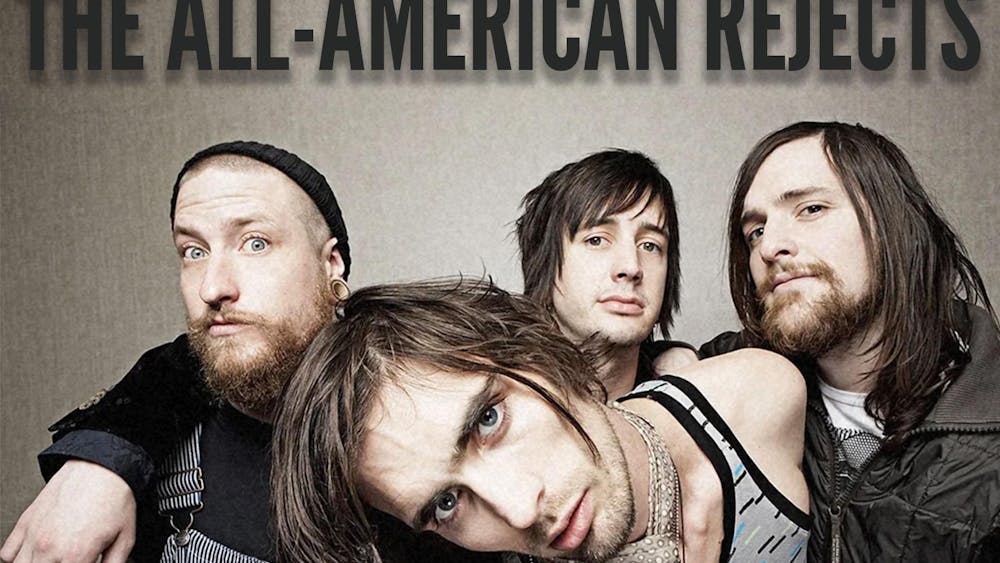
This past weekend, Kanye West did the most Kanye-thing Kanye could do. At the Hollywood Bowl in Los Angeles, he performed a pair of shows in which he disregarded just about all of his major hits and performed the entirety of his worst-received album, “808s & Heartbreak,” in an eccentric display of high art.
“808s & Heartbreak” is one of the more challenging and controversial pieces in the discography of one of the most challenging and controversial artists of the 21st century. When it was first released in 2008, a lot of Kanye fans (myself included) had dismissed “808s and Heartbreak” as a fluke, a failure and a footnote in the history of the self-proclaimed greatest rock star alive.
For years, Mr. West had promised “Good A** Job” would be his fourth studio album. This was supposed to be the capstone on his college-themed discography, a project that began in 2004 with his breakout hit album “The College Dropout” and had continued through 2007’s excellent “Graduation.” Fans had hoped it would develop those innovative and upward beats, creative lyric crafting and themes of upward mobility against all odds that had pushed Kanye from a beat-maker in the dim light of the recording studio into the limelight of global hip-hop fame.
Instead, Kanye ditched positivity entirely. West suffered not only the end of a very long and serious romantic relationship but also the death of his own mother due to surgical complications within a very short time period. In response to all this heartbreak, Kanye stripped back all the braggadocio from his production and revealed a very intimate and unexpected album, “808s & Heartbreak.”
Where West’s previous albums were loud, complicated and proud, “808s & Heartbreak” was quiet, minimalist and tender. Kanye restricted himself to a TR-808 drum machine for most of the beat production. The 808 is a simple machine known for its affordability and its very sparse range of sounds, so “808s & Heartbreak” had a very lo-fi feel in the beat department.
Furthermore, the album shocked many because Kanye ditched rapping entirely in favor of singing with the help of AutoTune, a program known at the time mainly as an irritation and a cheap gimmick used by the likes of T-Pain.
Between the mournful lyrics, stripped back production and AutoTune enhanced singing, it was very difficult for some fans at the time of release to accept this album into the canon of great Kanye West works. The question, then, is why would Kanye dedicate two entire shows so many years later to what was initially such a poorly regarded album?
Thanks to the ability to look back at this work with the context of everything that has happened after, it’s become clear that “808s & Heartbreak” is worth a second visit as it was a groundbreaking album with significant impact on the music industry. The persona that Yeezy developed in those tracks, that of a man struggling with heartbreak, insecurity and emotions, is a far cry from the confidence and toughness from the gangster rap of old and opened the way for a number of other artists to express intimate feelings in ways previously unheard of. Songs such as The Weeknd’s “Can’t Feel My Face” or Drake’s “Hold On, We’re Going Home” simply would not have been possible in the years before “808s & Heartbreak.”
“808s & Heartbreak” is an album worth revisiting, not only because its huge influence on other artists, but also because of the way it has impacted the Kanye of today.
None of the Kanye West productions of the past few years, whether it be from “My Beautiful Dark Twisted Fantasy,” “Yeezus” or even the currently unreleased “Swish,” would be what they are without the experimentation and efforts of “808s & Heartbreak.”
By throwing caution to the wind and disregarding the desires of his fans, Kanye proved on “808s & Heartbreak” that he could develop what the music industry needed and not necessarily just what it wanted. This strategy was incredibly important, especially in the development of his magnum opus, “My Beautiful Dark Twisted Fantasy,” but perhaps even more so for 2013’s “Yeezus.”
“Yeezus” took the minimalist foundation and precedent set forth in “808s & Heartbreak” and reduced it to its darkest, most jarring and most industrial core. This is readily apparent in tracks such as “New Slaves,” where, for the majority of the song, the only sounds come from Kanye’s voice and the backing bass production, creating a sense of contrast that develops feelings of discomfort for the listener.
Then there are songs like “Blood on the Leaves,” which once again heavily feature the reviled AutoTune. And just as in “808s & Heartbreak,” West uses the voice-altering program not only to hide the imperfections in his singing voice but also to establish a robotic, inhuman presence that greatly differs from the impassioned sample of Nina Simone’s rendition of “Strange Fruit.”
The influence of “808s & Heartbreak” even extends to Kanye’s most recent works on his soon-to-be-released “Swish,” specifically in this January’s “Only One.” Once again, West ditches his confident rapping in favor of the AutoTune enhanced singing. The impact of “808s & Heartbreak” extends beyond the technique though, as Kanye again embraces his more vulnerable and emotional side to sing about his daughter from the viewpoint of his mother in Heaven.
So while “808s & Heartbreak” may not have initially been everyone’s favorite Kanye album, the significance of the album to Kanye since its release is undeniable. This past weekend’s concerts at the Hollywood Bowl give us a great opportunity to revisit this groundbreaking album and once again explore the power of 808 drum machines, AutoTune and heartbreak.













